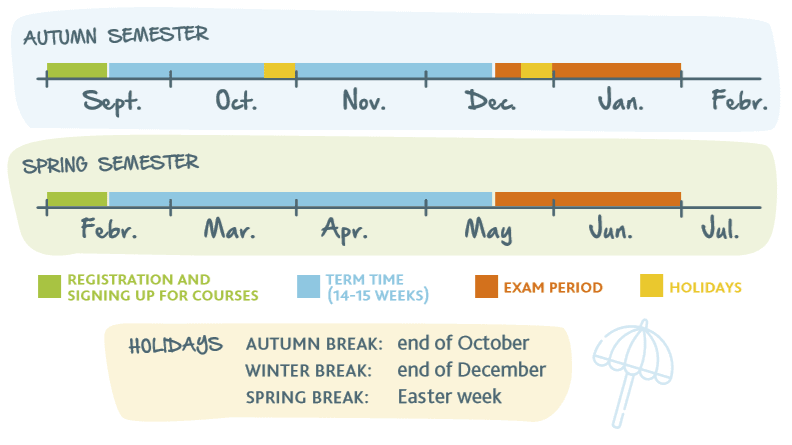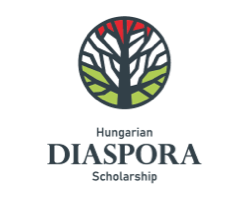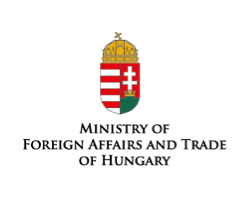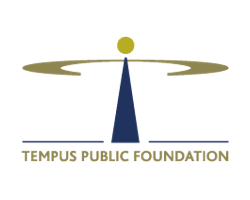
2021-05-11
Hungary is full of educational opportunities for international students. You can develop your career, get quality education, and earn a European diploma at the same time. We collected all the necessary and useful information you need to know about Hungarian higher education before starting your journey in Hungary.
THE BOLOGNA SYSTEM
Introduced in 2003, the European Credit Transfer System (ECTS) facilitates the recognition of your learning achievements throughout the European Higher Education Area. Also, it ensures that the grades – you have achieved in Hungary – can be accepted by other European institutions and vice versa. In addition, you also get a special “Diploma supplement” to your diploma which is accepted all over the European Union.
In 2006, the European Union introduced a new, modern higher education system, which is known as the Bologna Process. Hence, international students have the chance to study in a flexible European framework with numerous opportunities such as credit transfer between two countries or the uniformity of diplomas. The traditional college and university level training programmes were replaced by basic training programmes (BA, BSc), master level programmes (MA, MSc), and doctoral programmes (Ph.D, DLA).
• First cycle programmes result in a Bachelor’s degree (in Hungarian: alap fokozat). They last for 6-8 semesters and the required credit number is about 180 – 240 credits.
• Second cycle programmes result in a Master’s degree (in Hungarian: mester fokozat). They last for 2-4 semesters and the required credit number is about 60 – 120 credits.
• Integrated, one-tier programmes result in a Master’s degree and they last for 10-12 semesters. The required credit number is about 300 – 360 credits. In most cases, the following programmes are offered as integrated programmes due to their specific training systems: teacher training, religious studies, some programmes of arts, veterinary medicine, architecture, dentistry, pharmaceutics, law, and medicine.
• Doctoral programmes result in two kinds of degrees, depending on the doctoral programme you take. You can get either the award of “Doctor of Philosophy” (PhD) or “Doctor of Liberal Arts” (DLA). Both kinds of programmes last for 36 months and require the completion of at least 180 credits, plus publication and teaching credits (20-40 credits).
UNIVERSITY GRADES IN HUNGARY
At the end of the semester, your achievement is assessed with grades (5 – excellent, 4 – good, 3 – medium or satisfactory, 2 – sufficient or pass, 1 – fail) and you get the Transcript of Records. The Transcript of Records contains a list of completed courses, credits, the Hungarian grade, and the ECTS grade.
At the end of the semester, your achievement is assessed with grades (5 – excellent, 4 – good, 3 – medium or satisfactory, 2 – sufficient or pass, 1 – fail) and you get the Transcript of Records. The Transcript of Records contains a list of completed courses, credits, the Hungarian grade, and the ECTS grade.
ECTS grades compared with Hungarian grading:

ACADEMIC YEAR AND COURSES
In Hungary, the academic year is divided into 2 semesters (autumn and spring semester) including 14-15 weeks, followed by an examination period that lasts for 6-8 weeks.

During your studies, the courses can be held in two different forms: seminars or lectures. Lectures are usually for big audiences, the attendance is recommended, and it ends with a written or oral exam. Seminars are usually more informal study sessions where there is a group of 10-20 students and attendance is obligatory. Seminars provide a great opportunity for individual consultations and group discussions, and the semester ends with an essay or an oral exam.
UNIVERSITIES AND THE FIELDS OF STUDIES
Today, there are 65 higher education institutions in Hungary from minor universities of applied sciences to top research universities. As a result of the institutions’ internationalization process, there are endless study opportunities for international students. They offer more than 1000 study programmes in English, German, French and other languages. To find out more about the available Hungarian higher education institutions and programmes, check out our partners here!






